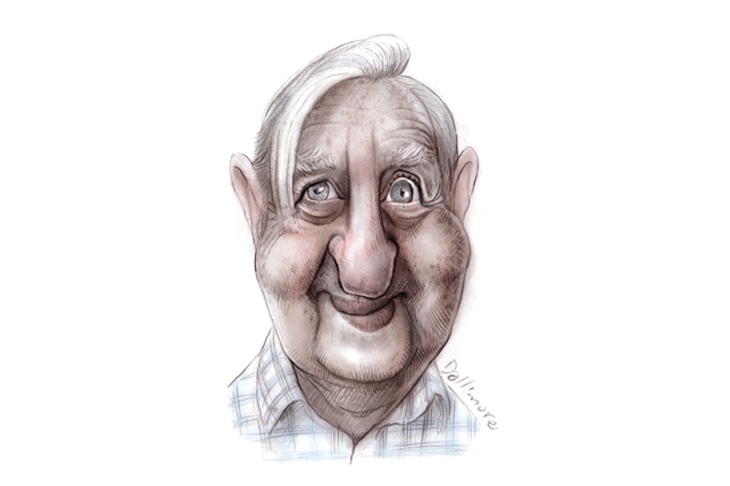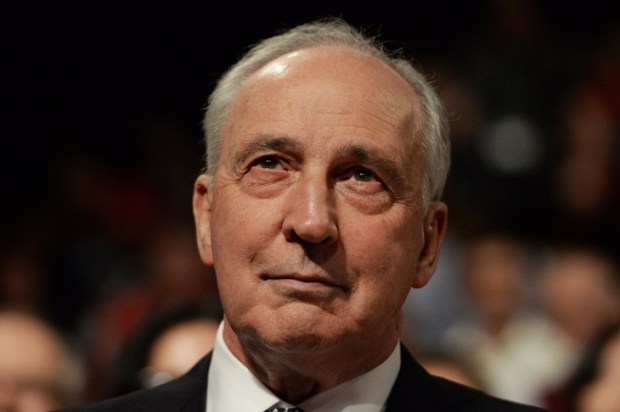William Peter Coleman (15 December 1928 – 31 March 2019) was that increasingly rare creature in contemporary Australia, a great public intellectual, a politician of the highest integrity and a gentleman.
Born in Melbourne, he grew up in Sydney where he imbibed the political battles of the interwar years at his father’s parties, listening to the arguments of freethinkers and Trotskyists. As a teenager, he tried to make sense of a society in which the Australian fascist Percy Stephens published paeans praising Hitler, the Emperor of Japan and the Protocols of the Elders of Zion, Bohemians in Pitt Street coffee shops discussed things, ‘more important than the war’ and the government chased votes by banning James Joyce’s Ulysses.
The world of ideas and the politics of the day became lifelong passions. Educated at Sydney University and the London School of Economics, he was greatly influenced by the philosopher and founder of Australian realism John Anderson and by the English philosopher and conservative thinker Michael Oakeshott.
In London, he married his Australian girlfriend, the beautiful and talented future biographer Verna Scott and after a few years drifting as ‘Piccadilly Bushmen’ they returned home.
He was one of Australia’s great editors, cutting his teeth as assistant to Donald Horne at the new Observer which was deliberately eclectic publishing ‘New Australians, right-wing trade unionists, radical Liberals, Melbourne Catholics, Sydney freethinkers’. He then took over as editor from Horne first at the Bulletin (‘64-‘67) and then at Quadrant (‘67-‘88). He gave a platform to writers, poets, artists and critics long before they became famous; Robert Hughes drew ink drawings before going off to New York and writing The Shock of the New, Bruce Beresford wrote about Australian cinema before going on to make The Adventures of Barry Mackenzie with Barry Humphries. Peter’s sense of humour shone through in biographical works he wrote about both of them and in his Cartoons of Australian History, which he wrote with the legendary cartoonist Les Tanner.
A ‘fellow traveller of secular liberalism,’ he always sought the views of people across the political spectrum and despite the increasing tendency towards polarisation and demonisation he tried to cultivate civilised debate. His symposium on Australian Civilisation documented the titanic clashes that played out in Australia, as around the world, between progressives and conservatives, communists and Catholics, between historian Manning Clark and poet James McAuley, both of whom felt a revulsion at a certain point in their lives, as so many intellectuals seem to, for Australian life – free, peaceful, prosperous.
He returned to this theme in his critically-praised study of the intellectual battles of the Cold War, The Liberal Conspiracy: The Congress for Cultural Freedom and the Struggle for the Mind of Postwar Europe. A true liberal, he had an enduring interest in free speech, writing Obscenity Blasphemy Sedition, A Hundred Years of Censorship in Australia, showing that most censorship was ‘stupid, philistine and counter-productive’.
Always generous with his time, he helped many other writers including his son-in-law treasurer Peter Costello co-writing The Costello Memoirs and assisting Nick Cater with The Lucky Culture.
The founding editor of Quadrant and poet James McAuley had a particularly important impact on him. The Heart of James McAuley was his response to McAuley’s genius as was Memoirs of a Slow Learner, a brilliant and at times hilarious account of his life as an intellectual with a genius for being in the right place at the right time.
A man not just of word but deed, Peter was elected the Liberal member for Fuller, a marginal seat in the NSW state parliament in 1968 and rose to be Opposition leader in December ‘77. Less than a year later, in October ‘78, he had to go to the polls facing one of NSW most skilful politicians, Neville Wran, and in his electorate, faced the very decent Rodney Cavalier. Like at least two other distinguished Australian political leaders, he suffered the ignominy of losing his seat, in an election dubbed the ‘Wranslide’.
After a stint as the administrator in Norfolk Island, dealing with ‘unruly (and sometimes megalomaniac) Island MLAs nourished on Anglo-Polynesian legends of the mutiny on the Bounty’, he went on to win the federal seat of Wentworth in a by-election in April 1981. It proved to be a poisoned chalice. It was the tail-end of the Fraser government and colleagues rang him up saying, ‘Welcome to Fawlty Towers.’ Less than two years later, his old friend Bob Hawke was elected Labor prime minister and Peter was once again in opposition. With a field of competitors jostling for pre-selection, he graciously retired in ‘87. John Hewson won the seat.
Politics’ loss was Australia’s gain for it was in the world of letters, to which he returned, that he really excelled. He saw the world as ‘a conflict between the will to power and the will to truth, between egoism and imagination’ and believed that while society needed ‘pushy politicians’, political life could destroy you.
One of Peter’s most entertaining contributions to public life was his regular column for The Spectator Australia (2009-‘17). Perhaps the most outstanding of these was a column in 2015 recounting the personal note he received from the editor of Charlie Hebdo, Stephane Charbonnier, when he subscribed to the publication, which included a note which said, ‘Don’t be afraid, Peter’. It was one of the last the editor sent before being slaughtered by Islamists. The devastation Peter felt at that barbaric attack was searingly personal; his grand-daughter Maisie was dating the web-master of Charlie Hebdo, who nearly died in the massacre. He made an extraordinary recovery and the family celebrated a fairy-tale wedding in Paris.
Self-deprecating and with a mordant sense of humour, Peter Coleman was only too conscious of the poor reputation of ‘scribblers’ and ‘eggheads’, not least in Australia. Yet he never tried to disguise his ‘affliction’ since he was firmly of the view that the unexamined life was not worth living and that in any case, there was no cure. We should be grateful; we are infinitely richer for his malady.
Got something to add? Join the discussion and comment below.
Get 10 issues for just $10
Subscribe to The Spectator Australia today for the next 10 magazine issues, plus full online access, for just $10.
You might disagree with half of it, but you’ll enjoy reading all of it. Try your first month for free, then just $2 a week for the remainder of your first year.














Comments
Don't miss out
Join the conversation with other Spectator Australia readers. Subscribe to leave a comment.
SUBSCRIBEAlready a subscriber? Log in